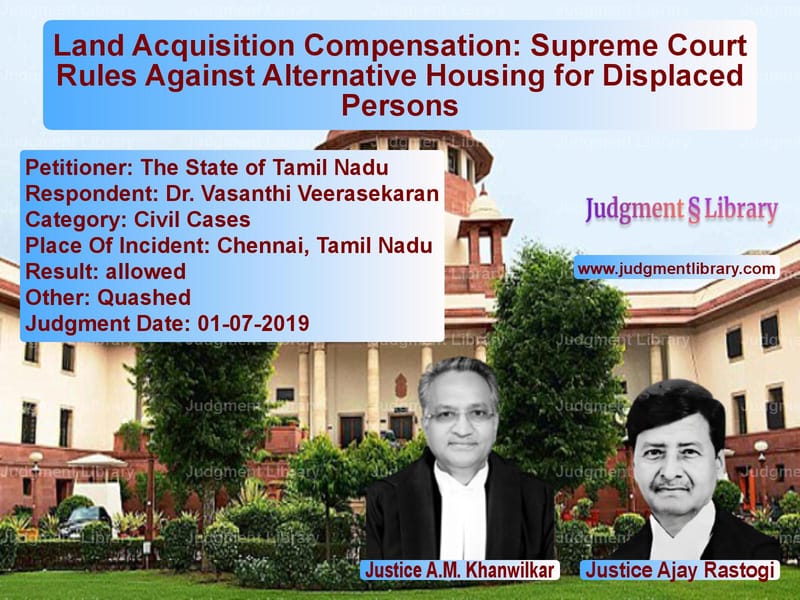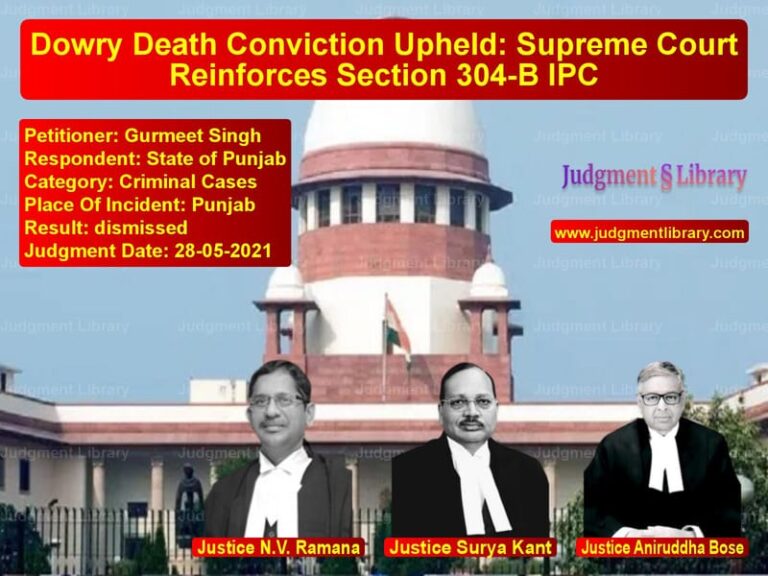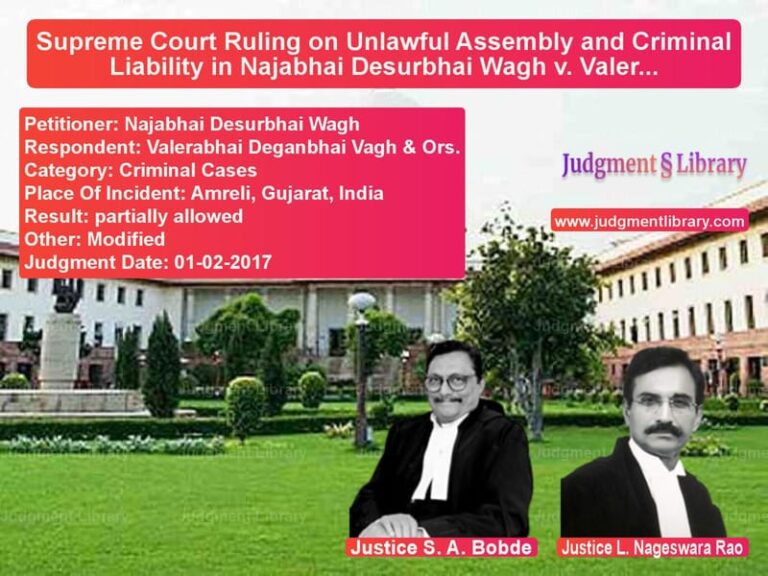Land Acquisition Compensation: Supreme Court Rules Against Alternative Housing for Displaced Persons
The case of The State of Tamil Nadu v. Dr. Vasanthi Veerasekaran pertains to a dispute over land acquisition for the Mass Rapid Transport System (MRTS) Railway Project. The Supreme Court ruled against the demand for alternative housing sites for displaced persons, emphasizing that no legal or policy obligation mandated such allotments when land was acquired for railway infrastructure projects.
Background of the Case
The case arises from land acquisition in Chennai for the MRTS project under the Land Acquisition Act, 1894. Several landowners challenged the acquisition and sought alternative housing under a special rehabilitation scheme.
Key Facts
- The Tamil Nadu government acquired land from the respondents for the MRTS Railway Project.
- Following legal challenges, the High Court of Madras ruled that displaced persons should be considered for alternative housing sites under a special category.
- The government rejected this request, leading the affected landowners to file fresh writ petitions.
- The High Court ruled in favor of the landowners, directing the government to provide alternative housing.
- The Tamil Nadu government appealed the decision to the Supreme Court.
Arguments of the Parties
Petitioner’s (State of Tamil Nadu) Argument
- The land was lawfully acquired for a railway project, and no legal obligation existed to provide alternative housing.
- The Tamil Nadu Housing Board was not involved in the project, so its housing schemes could not be extended to affected landowners.
- Providing alternative housing would be an extra-legal concession not supported by law.
Respondent’s (Landowners’) Argument
- The government had previously allotted alternative housing in similar cases.
- The High Court had already directed the government to consider their applications.
- Their displacement caused financial hardship, and they deserved rehabilitation.
Supreme Court’s Analysis
Absence of Legal or Policy Obligation
The Court ruled that the government had no statutory duty to provide alternative housing:
“The High Court’s order misinterpreted policy decisions and imposed an obligation where none existed.”
Distinction Between MRTS and Housing Projects
The Court distinguished between projects intended for housing development and railway infrastructure:
“Land acquired for MRTS cannot be equated with housing schemes developed by the Tamil Nadu Housing Board.”
Precedents on Land Acquisition
The Court cited past judgments affirming that once land is acquired, owners are entitled only to compensation, not alternative housing:
- State of U.P. v. Pista Devi (1986): Landowners displaced by urban development may be eligible for alternative housing, but this does not apply to infrastructure projects.
- State of Kerala v. M. Bhaskaran Pillai (1997): Acquired land cannot be returned to the original owners once vested with the government.
- New Reviera Coop. Housing Society v. Special Land Acquisition Officer (1996): Courts cannot mandate alternative housing without a policy in place.
Policy Discretion of the Government
The Court reiterated that such matters fall within the policy discretion of the government:
“Judicial intervention in policy matters is limited; courts cannot dictate land allotment policies in the absence of statutory provisions.”
Final Judgment
The Supreme Court set aside the High Court’s order:
“The respondents have been compensated in accordance with law, and no further relief is warranted.”
The writ petitions were dismissed.
Significance of the Judgment
- Clarifies Land Acquisition Law: Reinforces that compensation, not alternative housing, is the primary remedy for displaced landowners.
- Limits Judicial Overreach: Ensures that courts do not impose obligations beyond statutory requirements.
- Protects Infrastructure Projects: Prevents undue delays in public projects due to rehabilitation demands.
Conclusion
The Supreme Court’s decision in The State of Tamil Nadu v. Dr. Vasanthi Veerasekaran underscores that landowners affected by infrastructure projects are entitled only to monetary compensation unless specific rehabilitation policies exist. This ruling ensures legal clarity and safeguards the progress of public projects.
Petitioner Name: The State of Tamil Nadu.Respondent Name: Dr. Vasanthi Veerasekaran.Judgment By: Justice A.M. Khanwilkar, Justice Ajay Rastogi.Place Of Incident: Chennai, Tamil Nadu.Judgment Date: 01-07-2019.
Don’t miss out on the full details! Download the complete judgment in PDF format below and gain valuable insights instantly!
Download Judgment: The State of Tamil N vs Dr. Vasanthi Veerase Supreme Court of India Judgment Dated 01-07-2019.pdf
Direct Downlaod Judgment: Direct downlaod this Judgment
See all petitions in Property Disputes
See all petitions in Damages and Compensation
See all petitions in Judgment by A M Khanwilkar
See all petitions in Judgment by Ajay Rastogi
See all petitions in allowed
See all petitions in Quashed
See all petitions in supreme court of India judgments July 2019
See all petitions in 2019 judgments
See all posts in Civil Cases Category
See all allowed petitions in Civil Cases Category
See all Dismissed petitions in Civil Cases Category
See all partially allowed petitions in Civil Cases Category







